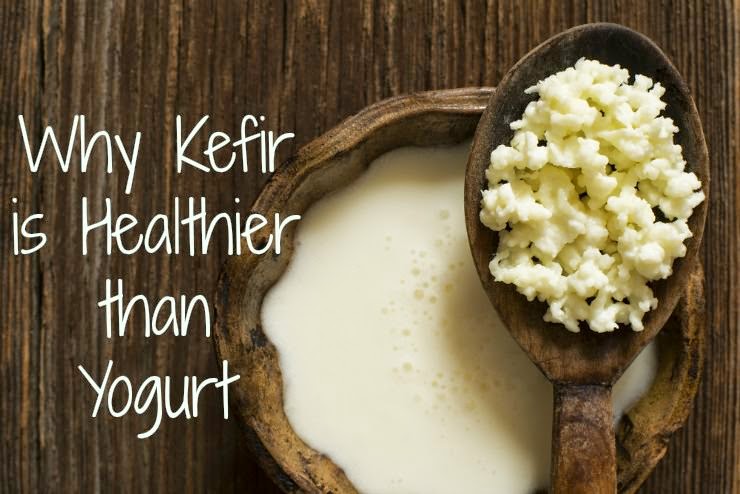Both yogurt and milk kefir are cultured milk products. Both the foods are good for health as they are rich in calcium, protein, vitamin B and potassium. They are a little sour in taste and have an identical tart. Both yogurt and milk kefir can be found in plain form and in different fruit flavors. The live cultures used to produce both yogurt and milk kefir results in the breakdown of the milk sugar. This facilitates lactose digestion. Their primary difference lies in the types and numbers of beneficial bacteria contained in them.
Below are the chief differences between milk kefir and yogurt :
1) Milk kefir contains plenty of beneficial yeasts that eliminates the pathogenic yeasts from the body. They keep the intestine clean and healthy. These beneficial yeasts are not present in yogurt.
2) Both yogurt and milk kefir contains probiotics. Probiotics are beneficial bacteria and beneficial yeasts that are normally found in the intestine of humans. They restrict the growth of harmful bacteria which can cause diseases and also boosts the immune system of the body. Milk kefir contains three times the probiotics that are present in yogurt. Your immune system will be highly boosted and you will stay healthy.
3) The consistency of milk kefir is much thinner than that of yogurt. It is usually obtained as a beverage. You can pour some milk kefir over a cereal, drink it or combine it with fruits to make smoothie. On the other hand, the consistency of yogurt is thicker and it cannot be drunk.
4) The individuals who are totally lactose intolerant can tolerate milk kefir but they cannot tolerate yogurt. This is because the plenty of beneficial bacteria present in milk kefir would digest the lactose in the milk. Therefore the lactose that would be left in kefir is almost 1%. So lactose intolerant individuals can easily have milk kefir.
5) Milk kefir is also easier to digest than yogurt . This makes milk kefir a nutritious and ideal food for the elderly people, babies and people having chronic digestive disorders.

No comments:
Post a Comment